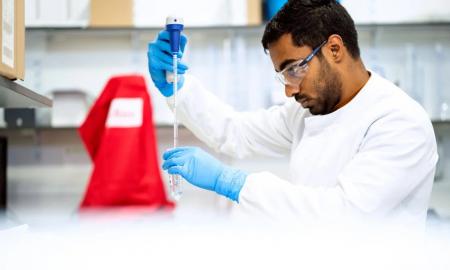Cancer is a vicious illness which plagues the modern world and is responsible for countless deaths over the years. However, cancer treatments are being developed and discovered in order to combat it and the success chances are now better than ever.
You may have heard doctors and other specialists that it is important to catch the cancer in an early stage to improve your chances of overcoming it. If you are not familiar with the term, you may be a bit confused. However, cancer is a complex illness and it may present itself differently through the different stages, which is why you ought to know how progressed the illness is and how you can approach it.
Stages of Cancer
There are several stages that cancer goes through from the first detection to the possible fatal outcome. The first of these is the so called Stage 0 which indicates that the cancer has not moved or spread from the place of origin, which greatly improves your odds. Stage I cancer has developed into a small tumor, but hasn’t spread to the surrounding tissues or has done so minimally.
Stage II and Stage III are typically grouped together because they present with very similar symptoms – the tumor is larger than in Stage I and there is a chance that it has spread to the lymph nodes, but it has not spread to other parts of the patient’s body.
Finally, Stage IV is the so-called metastatic cancer, meaning that it has spread from the place of origin and infected other parts of the body as well as the lymph nodes. It is also called advanced cancer and it can limit the treatment options.
The Treatment
There are many different treatment options for cancer, depending on the type of cancer, but also the stage of the illness. There are some treatment options which are only available in early stages, whereas others may be available at any point, as well as those which are not recommended to patients until the late stage.
For instance, surgical options are largely only available in Stage 0 or Stage I cancers, as there has been no spreading to other parts of the body, whereas chemotherapy and radiation therapy and a viable option for every stage and even though the effectiveness may vary depending on the size of the tumor, it is still considered the best option.
However, there are some experimental treatment options which are typically not recommended for patients who have other, better and more traditional options. They are typically reserved for late stage cancers and may not produce the desired results. And finally, there are the clinical trials.
Clinical Trials
Cancer treatment research typically takes a long time and needs to pass rigorous trials in order to make sure that the drug is safe and effective against cancer. One part of the cancer drug development are clinical trials. These can take place at specific times during the development and need to be repeated to ensure that they are producing consistent results.
However, not just anybody can qualify for these trials. The medication development companies such as Odonate need very specific test subjects when testing certain aspects of the drug. So, in order to know whether you qualify for a certain trial, you will need to know more about your cancer, including what stage it is currently in.
Predicting Results
Oncologists have a very difficult job. Not only do they often work with terminal patients and have to consistently give bad news to patients and their families, they also need to be able to give out relatively accurate predictions about the progression of cancer. This can be tricky because every person is different and can react to treatment differently, but overall, their experience gives them a certain dose of certainty about the outcome of your illness.
One of the biggest helps in determining the most likely outcome is the stage of the cancer. There are some outcomes that become increasingly likely depending on the stage. It is also a good time to start talking about the outcomes and the future steps.
You May Be Helping Others
As you may have deduced from the definitions of cancer stages, determining the exact stage your cancer is in is not necessarily the most precise designation, it’s more of a descriptive term. However, the more data we have, the more likely we are to be correct.
The information about your battle against cancer may be crucial to better understanding how cancer happens, changes, and how to beat it.






